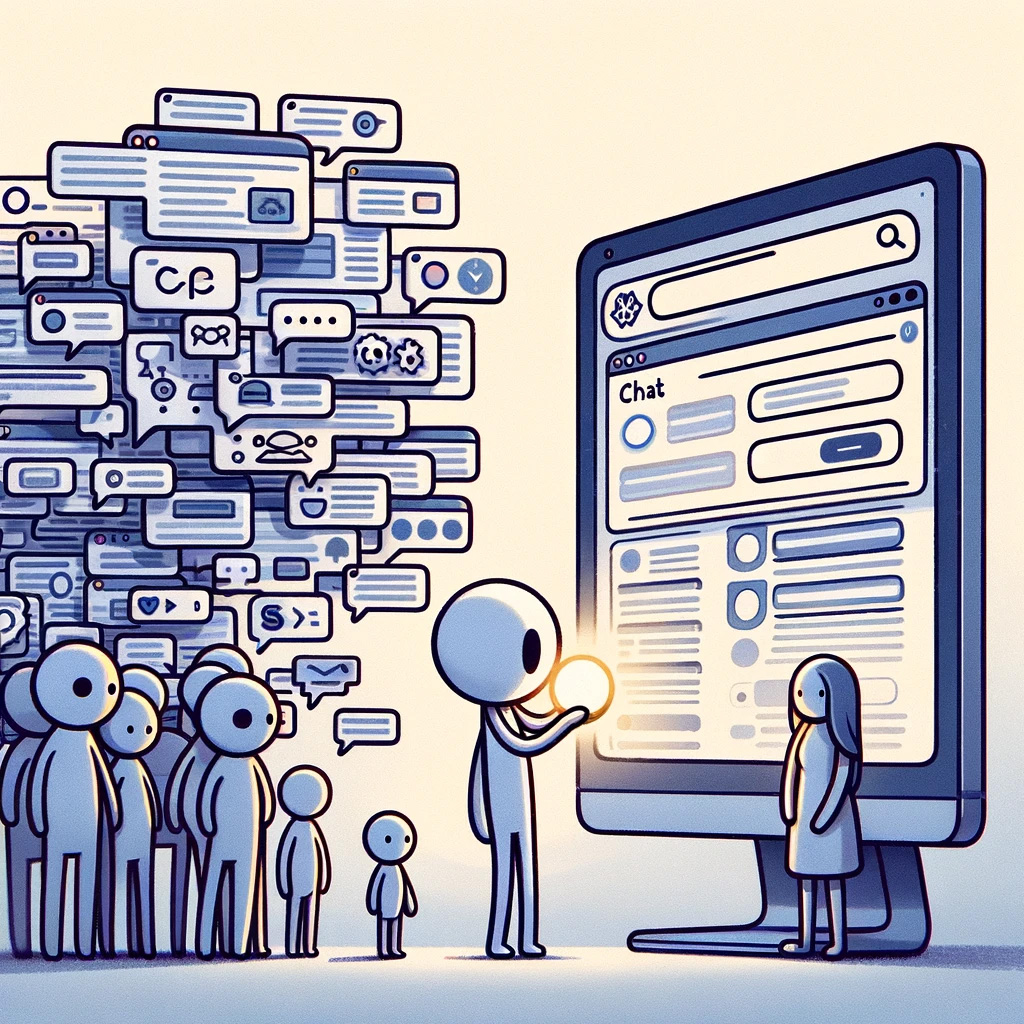
Digital Darwinism: Surviving in an AI-Centric Web Ecosystem
I’ve been using ChatGPT more than Google Search because the former gives me the answers I want without having to sift through the search results and deal with ads popping up every step of the way. Furthermore, ChatGPT remembers the thread of my inquiry, making follow-up questions easy.
In the early days of Google Search, most people didn’t know what it could be used for. “Oh, you need to find a pizzeria near you? Just ask Google,” I used to tell people. ChatGPT is in that stage now where little is known about its vast possibilities.
I wonder, though, what will happen to the web, the original source of information for ChatGPT, if querying AI agents, instead of web search, becomes the primary method of finding information. What would be the incentive for you to post an article on the web if nobody will read it? People will only get your information indirectly through AI’s understanding of the general consensus on the topic, for which you are only one of many contributors.
I suspect that not only Google Search but also the web, in general, will see a decline in traffic. Thanks to ChatGPT’s concise answers, I myself visit fewer websites now. We don’t contribute content on the web just because we are generous. We do so, hoping to draw people’s attention to us—information in exchange for attention. That equation will collapse.
News media did not want to block Google from indexing their articles because Google is the greatest source of traffic/attention, but with AI, say, the New York Times has no incentive to offer information to ChatGPT as the latter will not send any visitors to the former.
If the amount of content shared on the web declines, where would AI get information from? They may have to pay content providers. If so, services like ChatGPT will become much more expensive as the web keeps shrinking. People might sell content directly to ChatGPT.
Our lives will be similar to the lives of busy corporate executives. They tend to have assistants who provide them with “executive summaries.” With AI agents, that’s how I would imagine our lives will be. “Search” will be an unnecessary step; we ask and get the answer without searching for it.
Even for entertainment, the search will be over. We could say to the Spotify AI agent, “No, that sounds too sad. Give me something a bit more uplifting.” Over time, it will learn our preferences, so we won’t need to ask. It will guess what we want to listen to, given the time, place, weather, biometrics, and current activity.
We ask, and we get, but how will we ask for the attention of others? Just as famous people hire PR firms, we will ask our AI agents to get attention, but attention is a fixed pie. Our AI agents will have to battle it out. The most intelligent AI agents will monopolize attention. Rather than everyone becoming famous for 15 minutes, a more likely scenario is only 15 people becoming famous forever.
Subscribe
I will email you when I post a new article.


